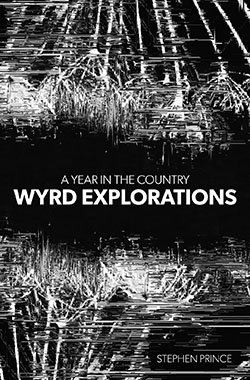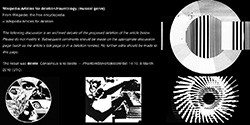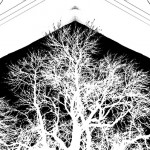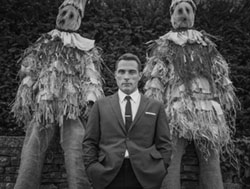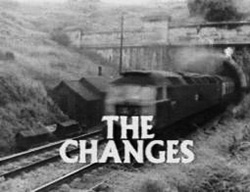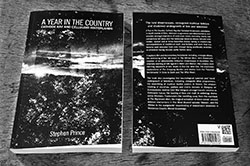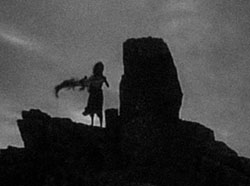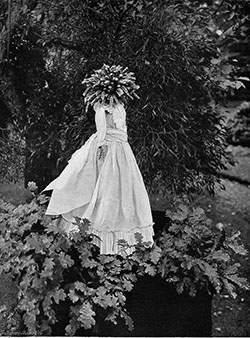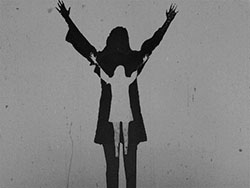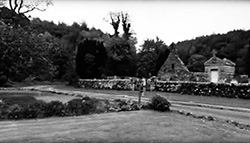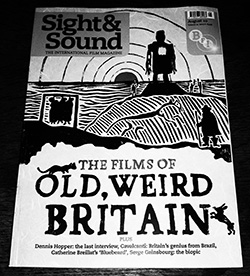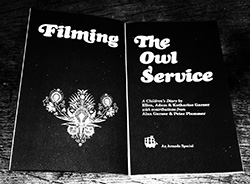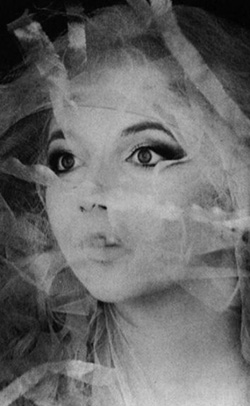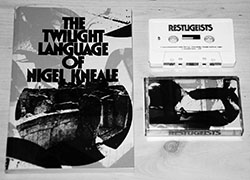 File under: Trails and Influences: Touchstones.
File under: Trails and Influences: Touchstones.
Case #27/52.
I’ve been interested and curious by just how many times references to the final 1979 Quatermass series have kept cropping up during this year in the country: not always obviously but when I recently re-perused it I kept having “Ah, that’s where that’s from” points of aha, connection and reference.
On this recent re-viewing I wandered if it wasn’t some kind of original point where the branches and trees of A Year In The Country first began to seed and grow; it has such a sense of the landscape and the fields being a place where ancient stories are told and retold, of pastoralism that is both refuge and an otherly unsettled place but more in a machinations of eldritch science/science fiction manner than ancient man made rituals. The patterns beneath the plough in this story are particularly deep, sewn from elsewhere in the cosmos and stretch way back through our history, to a previous (almost) final harvest.
Hmmm.
 I first came across the series in the early 1980s via it’s novelisation which was bought from the bargain bookshelves of one of my local newsagents (such places were something of an exciting cultural node for a young chap; I expect many an hour was spent wandering their shelves of comics and books, see Day #15/365 for more on such things).
I first came across the series in the early 1980s via it’s novelisation which was bought from the bargain bookshelves of one of my local newsagents (such places were something of an exciting cultural node for a young chap; I expect many an hour was spent wandering their shelves of comics and books, see Day #15/365 for more on such things).
I read it when I was going through an extended phase of reading science fiction that I expect was a bit beyond my years and comprehension but which I was drawn to and maybe searching for what would later become niche corners of culture.
This book in particular I was fascinated by and even to this day my mind still seems to ponder some of its themes and images.
And there are a lot of them: ancient stone circles as markers for where the human race was once reaped by an alien intelligence, of that intelligence possibly taking just a trace of the people it “destroys”/harvests – in a similar way as humans take just a trace of the musk deer to make our perfume, the collapse of society into near barbarism and the prime minister’s home having a tank outside to guard it (though it was said to not be mobile and to have a family of cats living in it), the new age wanderers seeking to be taken to the “planet”, decadent Benny Hill meets Clockwork Orange pandering television programs…
And it’s a fantastic vision of a Britain gone to seed and crumbled. I know that it will have been location scouted to show that but there is an underlying sense that this is more documentary than fiction in its portrayal; it captures something of the corrupt spirit of the times or at least how those times are sometimes remembered.
I don’t actually know if I saw the program when I was young, so I don’t know if it would qualify as a version of hauntological misremembered memory of it and its possible strangeness. I have a suspicion I may have seen the occasional snatch of an occasional episode late at night, on a black and white television with the sound turned right down and a coat over my head and the set so that the flickers of the screen didn’t give away my should be in bed watching…
…one thing that struck me on a recent re-viewing was just how genuinely watchable and gripping it is. Very modern in a way and stands up well with the pace and entertainment qualities of modern-day broadcasts. I mention that as it seems in contrast to some other become-otherly television programs that may be mentioned around these parts, which you almost have to recalibrate yourself to a different previous eras rhythm of story telling to appreciate today (see Day #33/365 for more on such things). It hadn’t been that long since I had previously seen it and still I was gripped from the start…
As seems to be my way of late, here are a few notes I made as I re-watched it:
1) Rather posh gang member muggers at the start in a thespian finishing school way.
2) “A wedding between a corrupt democracy and a monstrous tyranny.”
3) It’s an interesting comment on where the utopian freedoms and possible decadence of the 1960s and 1970s went when it overreached and curdled.
4) Every looks run down, bodged together in this Britain even radio telescope stations; there is a sense of a true plucky British spirit.
5) Burning books: almost Dickensian street market – a stall selling books “Guaranteed to burn well”.
6) “We’re being harvested.“
7) “Beware the quasars.”
8) “You mustn’t be like that when you grow up, promise me you won’t turn foolish. Promise me.“
9) There’s a curious sense of old world gentility in the face of societal collapse.
10) “It was here to, here in England, at ringstone round.”
11) The leader of the planet people is the worst kind of demagogue (and curiously looks rather like his almost opposite number, the radio telescope scientist leader… I kept having to double-take to check it wasn’t him).
12) It’s interesting as it’s a comment in a way against an over-reliance and over-emphasis on youth in society: “Yes, the older the better” on the scientists, officers and soldiers who become the investigators and possible saviours.
13) “A trace, a mere trace, you’re talking about a fragment” (see themes and images section earlier).
14) “You’d think she’d never had a stick in her hand before.” (see Benny Hill meets Clockwork orange, also in the themes and images section earlier); the logical extension of Legs and Co.?
15) “It’s the only show anybody watches anymore. It has a special place, it’s what we used to call a family show.“” Similar to Nigel Kneale’s prescient consideration of television in his other flickering stories, where programs have been reduced to The Hungry Angry Show.
16) “A ripe crop can’t appeal to the reaper. I think this is the gathering time. The human race is being harvested.“
17) “A cosmic error.“
18) “What was underneath
18) “A meadow. Appropriate for a human harvest.“
19) “What was underneath stayed under the open fields.” I’m actually unsettled typing some of this. Nigel Kneale’s stories seem to deal with very particular human and historical archetypes that get under the skin. By the end of Quatermass and The Pit’s atavistic pogroms I just really wanted it all to stop and the film to end, to leave me alone.
20) Scenes of (literally) underground government; all shabby, patched together and shrouded in cigarette smoke. It seemed like an accurate depiction of cultural memories of the hidden histories and subterfuges of the 1970s.
21) “Of course. The mother bird draws attention away from the chicks.“
22) Re longstanding sports gathering grounds: “The sacred turf they call it. I wander what’s underneath?” There’s a sense of distrust of mass gatherings and festivals, of the blind mass mind adherence and obedience of them.
23) There’s more than a touch of a connection and line from the harvesting of a species and it’s essences here to Under The Skin.
24) “You see the sky all sick? What that is, is spillings.” Well, there’s another bit of shoulder hunching heebie jeebies as I relate that.
25) “I can make them exist, do you know that? Not by magic or faith but… but by thinking.” Contrasts and battles between returned, resurging unquestioning beliefs and the rationality (?) of modern-day scientific belief systems.
26) Is it more unsettling because one of the planet people is future pop-ette Toyah Wilcox and one of the soldiers she helps convert is a future Blue Peter presenter?
 27) It’s interesting how the closing credits change colour gradually over each episode and then in the final credits it’s just nursery rhymes and children playing amongst the ringstone round. A return to a pastoral idyll but there’s something just slightly menacing (foreboding?) to it.
27) It’s interesting how the closing credits change colour gradually over each episode and then in the final credits it’s just nursery rhymes and children playing amongst the ringstone round. A return to a pastoral idyll but there’s something just slightly menacing (foreboding?) to it.
28) “I have watched the sky and the land become clean.“
















